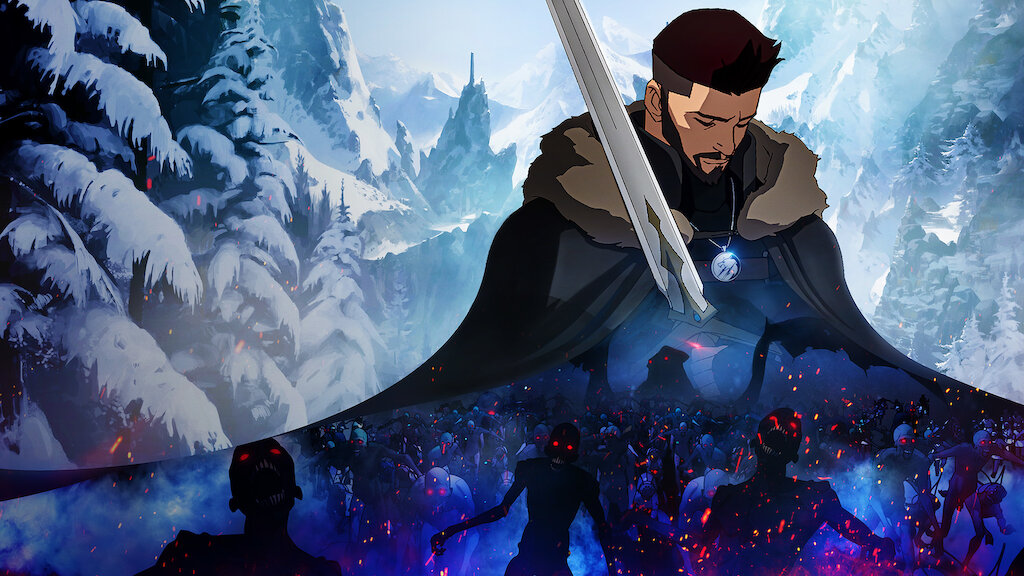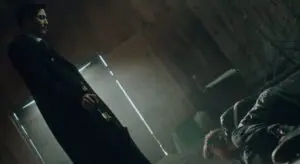Summary
The Witcher: Nightmare of the Wolf is aimed squarely at existing fans, but it’s a satisfying animated prequel that works on its own terms.
This review of The Witcher: Nightmare of the Wolf is spoiler-free.
I’m often reminded that The Witcher, originally a series of Polish fantasy novels by Andrzej Sapkowski, became popular in the mainstream, and I always wonder quite how that happened. The material is rich, obviously, but it only became popular after some English-language translations and in the wake of the success of its adaptation into video game form by Warsaw-based developer CD Projekt Red. The games resonated, to say the least. The third is widely regarded – by me included – as one of the best ever. And the second, The Witcher 2: Assassins of Kings, was gifted by Poland’s then-President Donald Tusk to Barack Obama to commemorate his visit, in what surely must be a first in global politics. It says a lot about what this world means, and to whom. It’s deeply rooted in regional folklore, but there’s something truly essential about its themes of intolerance and hardscrabble working-class life. The most consistent thing about all Witchers – the series’ name for mutant monster hunters – is that they’re all broke.
I raise all this since it’s funny to me that Superman, of all people, ended up playing Geralt of Rivia, the series’ nominal hero, on Netflix, of all platforms. It doesn’t get more mainstream as far as Polish fantasy is concerned. That season had its ups and downs, but it captured a lot of what is specifically interesting about this universe; it begged for a spin-off that we finally have in The Witcher: Nightmare of the Wolf, an animated prequel detailing how Geralt’s mentor, Vesemir (played here as a young man by Theo James), came to be a Witcher in the first place.
Vesemir wasn’t in the live-action series, but he’s prominent in the books and games, which is the first sign that this is a project aimed squarely at existing fans. It also deals with the history of Kaer Morhen, the Witchers’ windswept mountain keep, and the order’s near destruction at the hands of paranoid neighbouring villages. Mistrust and prejudice are rife among the inhabitants of Sapkowski’s world, and the Witchers are particularly despised, so it only seems right that their history is steeped in avoidable bloodshed and tragedy. Vesemir, here depicted as a swashbuckling sword-for-hire during the Witchers’ peak, seems as good a lens through which to view all this as any other.
He’s not recognizably Vesemir, though. James gives him a cocky attitude, and screenwriter Beau DeMayo fills his mouth with quips that don’t necessarily mesh with the older, grouchier version of the character we’ve already met. But this is, admittedly, a much younger man, one still excited by love and adventure, who has idealized the storied history and exploits of Witchers. His understanding of his own place in the world is tied intimately to the idea of Deglan (Graham McTavish), the no-nonsense hunter who plucked him from a life of servitude as a boy, and to the idea of a Witcher’s work as a vital and misunderstood service that the world only benefits from. As his preconceptions are challenged throughout the 81-minute film, he begins to resemble the older version of the character more and more, in attitude if nothing else.
A lot of time in the early going, though, is spent not only giving context for Vesemir’s urge to join the Witchers but to the deeply cruel means by which Witchers are created. Some of these sequences play closer to horror than the fantasy action that stuffs the final third, which is an all-action climax full of death, plot turns, and lavish anime-inspired visuals. The flashbacks are The Witcher: Nightmare of the Wolf at its least exciting but most effective, at least as a character study, but director Kwang Il Han and Studio MIR pull no punches when it comes to paying off all the build-up.
That the payoff is there – both in terms of the action and the significance to the franchise’s wider canon – reiterates the idea that this film is for those who’re familiar with the material already, as well as suggesting that we’re being introduced to people and shown events that’ll become important – or at least be called back to – during the second season of the live-action show. But the smartest touch of The Witcher: Nightmare of the Wolf is that it largely works on its own terms as a self-contained story – it ends up being a slight but satisfying one that works as a reminder of why this deeply weird franchise became popular in the first place.



